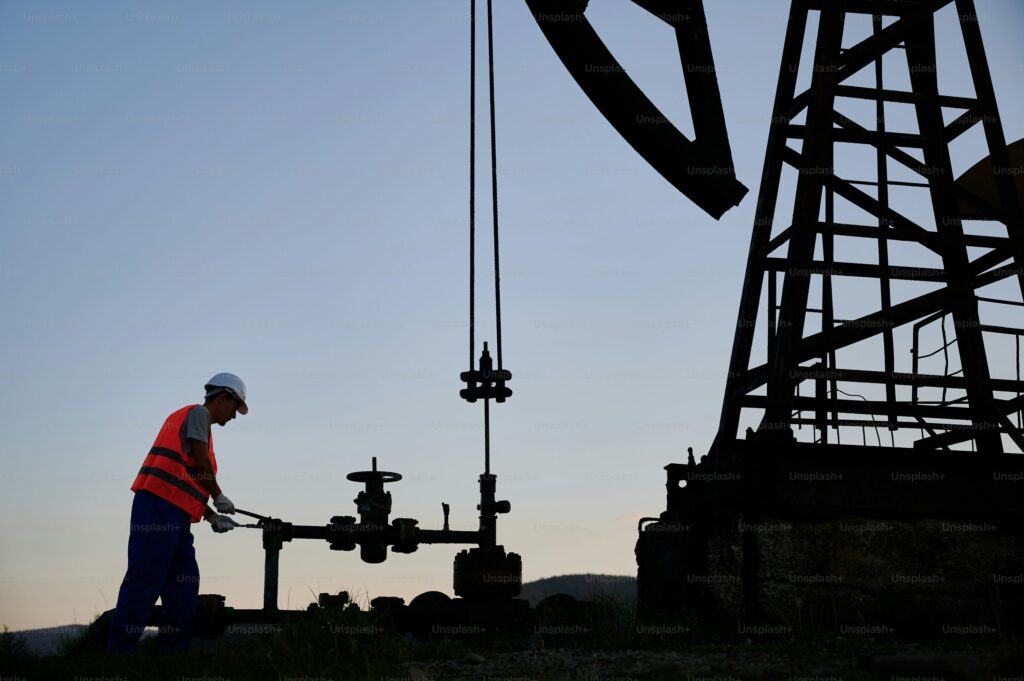Major Canadian fossil fuel companies continue to insist, in big glossy ads, that they’re totally on board with their business being crushed as greedy planet-destroying evilness. “We’re making clear strides to net zero”, says the Pathways Alliance, with graphics of fluffy white clouds and consultant-speak a politician would envy about “several pathways to get to net zero” based on “technology and innovation as part of a robust plan.” But as Charlie Chan warned, cozying up to your enemies doesn’t make them your friends. And in fact everyone from Canadian politicians to international think tanks are lining up to sink fangs into the those same energy companies seeking to rally round the white flag.
The strategy is widespread. Canadian energy giant Enbridge, for instance, is not part of the Pathways Alliance, which represents oilsands producers. It sells a different hydrocarbon, natural gas, and so it seeks to appease critics by things like boasting of pouring money into something called renewable natural gas or RNG. But any fool can spend money. The point of a business enterprise is to make it. (And yes, Enbridge has its hat out for government subsidies; they haven’t forgotten the bottom line.) But what is this famous “renewable natural gas” anyway?
It appears to violate the Second Law of Thermodynamics, since if you were to burn the methane, then use the energy and the water and CO2 emissions to recreate the NH4 and O2 inputs, you would end up with less energy than you started due to entropy. After all if you ended up with more energy than you started we would long ago have switched to this magical perpetual motion machine. But in fact it also violates the First Law of Talking Sense because, Enbridge boasts, it actually means “Produced from organic waste, such as food scraps, farm waste and wastewater, carbon-neutral RNG is used to fuel fleets, power industry and heat homes and businesses more sustainably—making Ontario’s energy future that much cleaner.” And while any fool can say “As momentum to meet climate targets increases, RNG is steadily gaining ground as a viable way to step up climate action, quickly and affordably” it takes a real fool to believe kitchen scraps contain enough energy to power a modern economy… or even a PR campaign.
Many climate alarmists are certainly starting to feel that they are being played for fools with this kind of talk. More and more of them are speaking out against so-called “Greenwashing” which, the New York Times “Climate Forward” explains, means: “when companies make false or exaggerated claims to fool consumers into thinking their products or services benefit the environment.” Which is a bit of an odd way of putting it, since the real sin is to fool people into thinking their products or services are better for the environment than they are. And in keeping with our distaste for conspiracy theories, we suggest that a great many companies begin by deluding themselves with some sort of syllogism like “We are environmentally friendly. We make Thneeds. Therefore Thneeds are environmentally friendly.”
Whatever the motives, or degree of internal murkiness, those who like this kind of thing are increasingly convinced that firms are fibbing. And “Climate Forward” lists a number of high-profile cases where financial firms like Goldman Sachs have fessed up to exaggerating the climate merits of their offerings. If they don’t, activists go after them. The Dutch airline KLM is being sued for its wing-stretching claims of sustainable flying. And if you’ve ever been near a jet engine you can see how it might be hard to believe. (Unless you’re John Kerry or some other activist forever taking private jets to vital climate meetings. Like, say, Canada’s environment minister whose 266-member delegation to COP27 in Egypt last November cost at least $622,000 in air fare alone.)
Here in Canada, former Environment Minister and inveterate climate crusader Catherine McKenna just wrote in the Globe & Mail that:
“Here in Canada, oil and gas companies, the single largest source of greenhouse-gas emissions, need to step up and take meaningful climate action now. But instead, we have the Pathways Alliance – which represents major oil sands companies – taking out full-page newspaper advertisements claiming they are on their way to net-zero despite all evidence to the contrary.”
And the current incumbent, Stephen Guilbeault, just told the Toronto Star that oil companies are not cutting emissions and he has ways to make them:
“They are going to start doing their part. That’s what I tell Canadians. And the reason it hasn’t happened yet is because we haven’t asked them to do it. We haven’t forced them to do it, and we’re going to force them to do it.”
The attack is gaining momentum internationally as well. The Globe & Mail recently reported that:
“Canada’s oil and gas sector is actively undermining efforts to bolster the country’s climate policies, despite the industry’s own net-zero targets and messaging around its green credentials, claims a new analysis from a London-based climate think tank.”
And who are the supposed villains? Dirty rogue firms not part of Pathways? Heck no:
“The report by InfluenceMap, released on Thursday, analyzed climate-related public messaging in areas such as corporate reports, advertising and social media. It focused on the country’s six largest companies: Cenovus Energy Inc., Canadian Natural Resources Ltd., Imperial Oil Ltd., and TC Energy Corp., as well as the Canadian Association of Petroleum Producers, an industry lobby group.”
And who might the members of the Pathways Alliance be? Why, it’s Cenovus, CNRL, Imperial and ConocoPhillips, MEG Energy and Suncor.
Naturally the think tank found not sincere commitment to a greener future, and their own survival be hanged, but the usual denialist conspiracy:
“Despite the sector’s net-zero commitments, the industry ‘remains strategically opposed to science-based policy to deliver net-zero targets in line with limiting warming to 1.5 degrees C,’ the analysis found.”
Strategically, no less. So Canada’s oil companies are not making friends of their enemies by making enemies of their friends. Far from it. They’re digging their own graves. And it’s not going to get better.
As Tammy Nemeth recently warned in the Financial Post, all these crusading financiers with their ESG reporting requirements really do mean what they say, whether or not they understand it, and are going to make companies do likewise:
“In effect, governments are weaponizing accountants to disrupt and transform the global economy, and the government of Canada is fully on board — though without having bothered to ask Canadians if it’s something they really want.”
And companies are starting to discover that, having made a bedfellow of a green serpent, they are feeling very sharp punctures and a wave of nausea, because there is a very fundamental reality here.
As we pointed out back in 2019, in our first major video, on why the Paris Accord was doomed to fail, it was one thing to remove sulphur from power generation exhaust, because it was always a by-product anyway. But getting carbon out is a totally different story, since the whole point of oil, gas and yes natural gas is to combine carbon with oxygen to release energy, a phenomenon known technically as “burning it”.



"weaponizing accountants" - very apt. Keeping track of carbon credits and calculating carbon footprints is an endless make-work project for the bean counters of the world. Count on the big 5 firms to push this agenda hugely.
The corporate cowardice in response to the "Net Zero" pixie dust is disgusting. Rather than hyping de-carbonizing in the production phase which doesn't eliminate themselves from the planet sufficiently to please their enemies. They should be explaining the numeracy deficit in the goal of net zero. They should be stating that it isn't their job or goal to de-industrialize society, taking them back to a stone age level of subsistence. That's the job of the crisis manufacturing and pandering politicians and their hysteria campaigning NGOs. Their job is to provide high density energy that makes prosperity possible. If the elected sociopaths want to put them out of business in their "climate salvation" march back to serfdom and poverty, they should take no part in the effort.
This might sound really bad but if I was CEO of any Energy company being threatened by their Government, I would find a way to shut down for a few days.
When I worked in O&G the industry wanted to “get a seat at the table” by participating in the green fanaticism. Instead, they’re on the table waiting for the carving knife.
I like Bill's approach. In fact, have the company contribute to its net zero impact by shutting down one day a week. I could argue doing it where there are large government concentrations....but then I realized in the USA.....30% of US Government employees work from home and up to 94% work part of the week at home. Oh well.